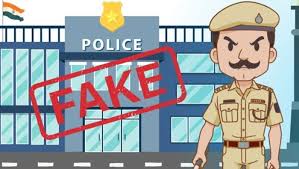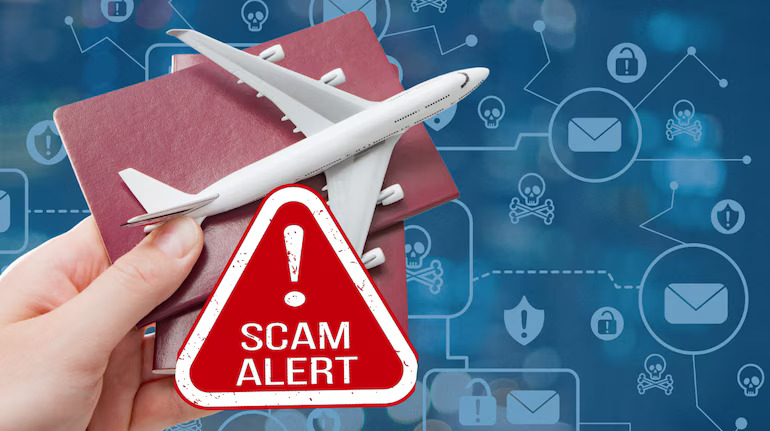Travelling has its thrills, yet it brings scammers too. Knowledge of the usual deceits can protect you from losing money or even worse. Ten scams that are most likely to happen to tourists, and ways to recognise them and be safe are described below.
1. Rigged Taxi or Ride-Hailing Fares
One of the most commonly encountered deceits in foreign countries is being asked to pay more for transport than it really should be. For example, taxi drivers might tell that their meter is broken or a ride-hailing app driver might switch his/her car at the last second.
How to prevent it:
- Negotiate a price first or ensure the meter is turned on.
- Always use the official ride-hailing apps if possible.
- Keep your eyes wide open when a driver leads you to take a longer route to a shop or a different place for “commission”.
2. Fake Police or Official Identity Verification
Criminals pretending to be law enforcement or government officials might come to you in a crowded place, require your passport or wallet, and then impose a fine on you right there.
Red flags:
They do not allow you to consult going to the nearest police station.
They require instant cash payment.
What should you do:
Request to check their official identification and if you still have doubt kindly propose to accompany them to the nearest police station.
3. The “Free” Gifts That Become Expensive
In popular tourist spots, there can be a person that gives a “free” bracelet, flower, or gift and later asks for money or even starts a fight with you.
Advise:
When an unfamiliar person offers you a gift that is not requested, just refuse it politely and go away.
4. Fake Currency Exchanges & Short-changing
The usage of currency kiosks that are not reputable or of being inattentive while exchanging money may result in a cost. At times, the rate is quite low, or bills are slightly less than what should be given.
Avoid this by:
- Taking money from ATMs that are inside the bank or at a trusted exchange booth.
- Making sure to count your money before you walk away from the counter.
- Using a smartphone app to check current exchange rates so that you can tell if a deal is really good (or bad) when you wonder about it.
5. Rental Equipment & Hotel “Full” Scams
A scenario where one would get charged for damaged items (not being the reason for the damage) or being sent to a more expensive hotel with commission involved is possible when the fraudsters’ trickery comes to the point of scooters, surfboards, and rooms.
Prevention:
- Take pictures of the rental items before usage.
- Always confirm your hotel room reservation in advance.
- In case a person stating “your room is full” offers assistance, ask him/her to call the hotel from your side.
6. Phony Wi-Fi or Digital Traps
Public Wi-Fi can be a serious threat. One of the types of networks is set up by scammers to steal your private data and money.
Security Measures:
- Keep away from banking or any other sensitive activities in public Wi-Fi.
- Use a VPN every time.
- Turn off the auto-connect to the open networks.
7. Overtly priced “Tourist” Items or Counterfeit Items
To mention the crowded tourist markets, for instance, it is extremely difficult not to be misled by a product with such a ridiculously high price tag or one that is actually a fake or of a lower quality, such as fake or low quality jewelry or souvenirs that pretend to be genuine but are not.
Intelligent buying:
Compare the price at various shops.
If this is the case, bargaining is an acceptable practice in that region.
In case the product’s legitimacy is very important, purchase it from highly reviewed shops or authorized dealers.
8. Closed Site / Redirected Tour Scam
You get to a famous spot and an unknown person tells you that the attraction is no longer working and takes you to a “better” tour or a local shop where you might pay more or be ensnared in something else.
What to do:
Check the current situation of the spot by going to its official page or through local calls.
Do not believe the unsolicited advice from a stranger until you confirm it first.
9. Pickpocketing and Distraction Tactics
The technique described is very effective since it can be employed at any time; the person who distracts either inquires or spills something on you, meanwhile the confederate takes away your wallet, phone, or handbag.
However, for total security, it is advisable to:
- Place your valuables in zipped pockets or money belts that are open to view and be intimate with them.
- Be vigilant in places with a lot of people like bazaars, train stations, or bus stops.
10. Fake Holiday Offers or Accommodation Listings
Scams over the internet can ruin a vacation as well: travel deals that are not real, accommodation listings that have vanished, or phishing links that suggest you should “confirm your booking” to gain access to the deal.
Here’s how to protect yourself:
- Make reservations through reliable websites and check whether the property is actually available for rent.
- Don’t send money through wire transfer to people you don’t know.
- Be very cautious with emails/calls requesting your payment information or personal data; always verify.

Why This Matters
Scams inflicted on you during the trip will not only lighten your pockets but also mess up your travel plans, put your life in danger, or, worse, leave you without help in an area where you are not known. The knowledge of ten typical deceits beforehand provides you with a robust opportunity to have a delightful journey without any unpleasant surprises.
Final Tips for Smarter Travel
- Before going away, make a quick internet search using the words “scam” and your destination.
- Always have electronic copies of your passport, ID card and travel insurance.
- Trust your instinct: if you feel that something is wrong, then vacate the area.
- Get information from local official sources (tourism board, hotel concierge).
- Let someone trustworthy at home know about your travel plan or keep in touch with him/her regularly.
Enjoy your trip. Safe, no scams and full of wonderful memories!

